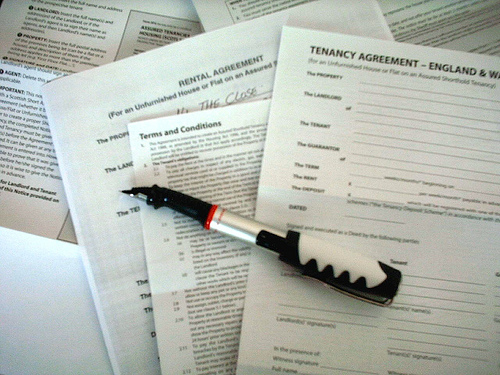Georgia Wrongful Death Lawyer Discusses Motorcycle and Truck Accident
 The second fatal collision occurred last week in Moultrie, Georgia this time involving a motorcycle and truck. The Georgia State Patrol investigators reported that a 1996 Toyota Tacoma, driven by an 81 year old man named James Henry Smith, failed to yield when crossing a road, hitting a motorcycle that was driven by 30 year old Randy Larry Harris.
The second fatal collision occurred last week in Moultrie, Georgia this time involving a motorcycle and truck. The Georgia State Patrol investigators reported that a 1996 Toyota Tacoma, driven by an 81 year old man named James Henry Smith, failed to yield when crossing a road, hitting a motorcycle that was driven by 30 year old Randy Larry Harris.
Very sadly, Mr. Harris was ejected from his motorcycle and died at the scene. Mr. Harris, a young man at age 30, tragically left behind a loving wife, children, and large extended family from West Berrien. He was a diesel mechanic and shop supervisor at the Berrien County Bus Shop, and a member of Ebenezer Baptist Church. The elderly driver who hit him was given a citation for failing to yield.
Very sadly, motor vehicle crashes such as this one are the leading cause of injury and death in the United States. The most recent 2010 report put out by the CDC (Center for Disease Control) reports that motor vehicle crashes are the leading in fact the cause of death among those age 5-34 in the U.S. The financial impact is also significant: the lifetime costs of automobile crash deaths and injuries among Americans was listed at $70 billion a year just a few years ago.
What If It Is Impossible To Complete A Contract, Can You Get Out Of It? Acts of God And Other Impossibilities Explained

Sometimes unavoidable emergencies happen. Lightning strikes. Tornadoes blow through Georgia. Floods, fires, and other natural disasters occur. These are called in legal terms “acts of God.” What does Georgia law say about God’s actions having an effect on a contract?
The Official Code of Georgia Annotated § 13-4-21 actually has a section entitled “Effect of Act of God.” No, this is not a religious passage. Rather, this is referring to natural disasters and the like which are all beyond the control of humans, and how these acts have an effect on the parties responsible for performing a contract.
Not everything is considered an act of God. Wars are not. Felder v. Oldham, 199 Ga. 820, 35 S.E.2d 497 (1945). Neither are “reasonably expected rains.” Tasker v. Baugh & Johnson, 124 Ga. 846, 53 S.E. 266 (1906). Of course we all know in Georgia that heavy rains are very reasonably expected, especially in the summer time! Also, an injury (like those caused by an automobile collision) is not an “act of God” if it is caused by the negligence of man. Georgia S. & F. Ry. v. Barfield, 1 Ga. App. 203, 58 S.E. 236 (1907)
Act of God was defined by the Georgia courts over 100 years ago to mean any “accident produced by physical causes which are irresistible; such as lightning, storms, perils of sea, earthquakes, inundations, sudden death, or illness. [Also] an act of God excludes all idea of human agency.” Cannon v. Hunt, 113 Ga. 501, 38 S.E. 983 (1901).
The statute clearly explains that if the performance of a contract becomes impossible as a result of “an act of God,” such impossibility shall excuse the non performance of the contract, except where, by proper prudence, such impossibility might have been avoided by the person who had promised to do something.
It is always good to have an “Act of God” clause in a contract in the unfortunate rare event something does happen which makes the contract impossible to perform. For example, what if I decide to rent your big red barn for my wedding day reception country hoe-down shin-dig? It is the perfect space for the wedding reception luncheon and has a nice wood floor for a dance. It is also perfect to fit the 200 plus guests I plan to invite.
You and I have a contract which states that I agree to pay you $1000 to rent your big red barn on my wedding day. Unfortunately however, lightening strikes and your big red barn burns down to the ground one month before I am about to get married.
What does the law say about the legal obligations of our contract? Can I sue you now for not being able to perform your end of the bargain—letting me host my wedding reception in your barn? Well, the law is clear. O.C.G.A. § 13-4-21 says no. An “act of God” has intervened and it is now impossible to perform your end of the contract. Now it is likely that you will need to return the $1000 to me in order to avoid a claim of “unjust enrichment,” nevertheless, I cannot sue you for failing to provide me your big red barn for my wedding day.
This is an example of how the legal theory of “impossibility” can be a strong defense to performing a contract. A good contract will have an actual “Acts of God” clause in it. Whether you are an atheist or devoutly religious, an “Acts of God” clause in a contract obviously refers to what happens if there is some emergency (not caused by a human) that renders the contract impossible to perform. It is always good to have the parties agree on “plan B” ahead of time, in writing, as part of the contract.
To understand your contractual legal rights and obligations better, it is always a good idea to consult with a good Georgia lawyer.
Continue reading →
Cancelling a Contract After Three Day Cooling Off Period: Georgia Contract Law Explained–Part Two
 This is part two of our article about cancelling contracts within a three day cooling off period in Georgia. The three day cooling off period is actually federal regulation which is very narrowly applied, so make sure you carefully read part one of our article before reading the following.
This is part two of our article about cancelling contracts within a three day cooling off period in Georgia. The three day cooling off period is actually federal regulation which is very narrowly applied, so make sure you carefully read part one of our article before reading the following.
It is also important to understand that even if the three day cooling off period does not apply to the facts of your case, there may be other conditions and reasons (fraud, misrepresentation, mental/age incapacity, illegality unfair trade practices, and more) that may permit you to rescind (get out of) a contract. Thus, it is is well worth your while to schedule a legal consultation to immediately determine your rights.
Nevertheless, if in fact the three day cooling off period does apply, in connection with any door-to-door sale or sale that is anywhere other than the place of business of the seller, (i.e. NOT the seller’s store but at a place like your home, a conference center, a dormitory, etc…), it constitutes an deceptive act or unfair practice for any seller to:
(a) Fail to give the buyer a fully completed copy of any contract in the same language, (e.g., Spanish), that was primarily used in the oral sales portion of the presentation showing the transaction date, name and address of the seller, and near the section in the contract for the buyer’s signature or on the front page of a receipt, the following notice of cancellation, in bold face, in a minimum of size ten font stating:
“You, the buyer, can cancel this transaction at any time prior to midnight of the third business day after the date of this transaction. See the notice of cancellation attached for explanation of this right.”
(b) Fail to furnish each buyer, a notice of cancellation that explains that they may cancel the transaction, without any obligation or penalty, within THREE BUSINESS DAYS from the above date.
If the buyer cancels, they must receive back their money within ten days and the buyer must make available to the seller at his or her home, any product that had been delivered to them under the contract. They need to return the product in good condition, or they must follow the instructions of the seller regarding the return shipment of the goods at the seller’s expense and risk.
If the buyer makes the goods available to the seller and the seller does not pick them up within 20 days of the date of Notice of Cancellation, the buyer may keep or dispose of them. If the buyer fails to return the goods, then they remain liable for the contract.
(c) Fail, before providing copies of the “Notice of Cancellation” to the buyer, to complete the notices by entering the name of the seller, the seller’s business address, the sales transaction date, and the date of cancellation.
(d) Fail to inform the buyer orally, at the time of the contract, of the buyer’s right to cancel.
(f) Misrepresent the buyer’s right to cancel.
(g) Fail to honor any valid notice of cancellation by refunding payments, etc.
(h) Sell the contract to a third party before the three day cancellation period is up.
(i) Fail, within 10 business days of receiving cancellation, to notify the buyer whether they intend to repossess any goods that were sold.
As stated earlier, this three day cooling off period falls under a federal regulation, specifically from the FTC (Federal Trade Commission) which outlines the rules concerning the cooling off period for sales made at homes or certain other locations. The three day cooling off period only applies to a specific, select type of sales. However, as mentioned previously, we cannot over-emphasize the importance of obtaining legal counsel, because even though the “three day cooling off period” may not apply in your situation, other legal theories may apply which might permit you to rescind (get out of) a contract.
However, time is of the essence in all of these situations. Thus, it is important to immediately meet with an attorney who can actually sit down and review your contract with you and listen to all the facts and circumstances of your situation in order to be able to properly advise you of your legal rights.
Continue reading →
Can I Cancel My Contract Within Three Days & Is There A Cooling Off Period In Georgia?–Part One

Generally, there is no cooling off period in Georgia except for very rare exceptions, however that doesn’t mean you necessarily are trapped in a contract. There are other conditions and reasons (for example fraudulent misrepresentation, illegality, incapacity, unfair business practices, and more) that may permit you to rescind (get out of) a contract. However, time is of the essence so it is essential to seek a good Georgia lawyer who can help interpret your contract and advise you of your legal rights concerning the facts of your case.
In general, the “three day cooling of period” applies under federal law for only very specific contracts.
Three Day Rule Generally Applies Only Under The Following Conditions:
1. A seller went “door to door” and sold, leased or rented you a consumer good or service with a purchase price of $25 or more and;
2. They (not you) solicited the sale (even if it was following an invitation by you the buyer), and;
3. The offer to purchase was made anywhere other than the place of business of the seller, i.e. NOT the seller’s store but at a place like your house, a convention center, a dorm, a workplace, etc…
There Is No Three Day Cooling Period If The Sale Was:
(1) Made pursuant to prior negotiations you the buyer had while visiting a retail business location which had a permanent fixed location (like a store) where the goods were exhibited (like a furniture shop) or the services were offered for sale on a continuing basis (like a computer repair shop); or
(2) The consumer is afforded the right of rescission by the provisions of the Consumer Credit Protection Act; or
(3) The buyer initiated the contact and the goods or services were required for an immediate personal emergency of the buyer, and the buyer gave the seller a separate dated and signed personal statement in the buyer’s handwriting explaining the situation, acknowledging and waiving the right to cancel the contract within three days; or
(4) The sale was conducted and sold entirely by phone or mail; and without any other contact prior to delivery of the goods or performance of the services; or
(5)The sale was where the buyer initiated the contact and requested the seller to visit the buyer’s home for the purpose performing maintenance or repairing personal property. (However, if in the course of such a visit, the seller sells the buyer the right to obtain additional services or goods other than replacement parts necessarily used in performing the maintenance or in making repairs, the sale of those additional services and goods do not fall within this exclusion); or
(6) Pertaining to the sale or rental or real estate property, to the sale of insurance, or to the sale of securities or commodities by a broker-dealer seller who is registered with the SEC.
There are always exceptions to the rule, so if you suspect you’ve been “done wrong” immediately seek legal counsel to learn what your legal rights and obligations are.
Continue reading →
Good Georgia Lawyer Wins Trial After Suing A Lawyer And A Judge On Behalf Of Our Client
 Julie Oinonen, partner at Williams Oinonen LLC just won a trial against a sitting Atlanta judge who was a defendant, receiving a substantial money judgment in favor of her client. Our client was a very nice lady from Georgia who had to sue her two former lawyers, one a sitting Judge in Atlanta, for breach of contract.
Julie Oinonen, partner at Williams Oinonen LLC just won a trial against a sitting Atlanta judge who was a defendant, receiving a substantial money judgment in favor of her client. Our client was a very nice lady from Georgia who had to sue her two former lawyers, one a sitting Judge in Atlanta, for breach of contract.
Our client had paid her two former lawyers money. Amazingly, the Judge denied ever receiving this money and astoundingly, even after our client had paid him thousands of dollars, added insult to injury by still insisting our client owed him money!
At trial however the Judge was impeached with prior inconsistent statements he had made in writing that we had blown up as large poster board exhibits during his cross examination. We are very grateful that the actual Judge who ruled on our case had the courage to render such a fair judgment even though it was against a fellow colleague/judge.
Legal Rights For Georgia Teachers Relating To Demotion, Termination, Non-Renewal of Contract or Reprimand

This is the second part of our article concerning the rights of Georgia public school teachers relating to termination, non-renewal of contracts, demotions, reprimands and the like.
You As A Contracted Public School Employee, Teacher Or Principal Are Entitled To Proper Service:
All notices relating to suspension from duty must be served to the employee either personally, or by statutory overnight delivery, or by certified mail. Service is considered “perfected” when it is deposited in the United States mail, sent with sufficient postage stamps, and delivered to the last known address of the employee.
You Have A Right To An Attorney Present:
Any teacher, principal, or other public school district contract employee against whom such charges are brought shall be entitled to be represented by counsel and, if upon request, can also subpoena witnesses and production of documents.
The Requirements Of The Hearing:
(1) The hearing is conducted in front of the local school board, or they can designate a tribunal made up of between three to five impartial people who have expertise in academics. This tribunal will then submit findings and recommendations to the local school board who will make the final decision.
(2) The hearing will be transcribed and the board is responsible to pay for that expense. The transcript does not need to be typed unless the decision is appealed to the State Board of Education which in that event whomever is making the appeal must pay.
(3) An oath must be taken by all witnesses during the hearing to tell the truth.
(4) All questions relating to legal matters such as admissibility of evidence is decided by the chairperson or presiding officer and can be appealed. In all hearings, the burden of proof shall be on the school system, and it shall have the right to present the opening and closing.
Decision And Appeals:
The local board must make a decision at the hearing or within five days of the hearing. If a tribunal hears the matter they must offer their recommendations within five days and then the school board has ten days to make their final decision. Appeals can be taken to the state board of education.
If you are a teacher or principal who finds yourself in this situation, don’t go it alone. Remember, you are entitled to have an attorney represent you at the hearing.
Continue reading →
Employment Law For Georgia Public School Teachers: Understanding Your Legal Rights
 The Official Code of Georgia §§ 20-2-940, et seq., governs the demotion,
The Official Code of Georgia §§ 20-2-940, et seq., governs the demotion,
dismissal, and suspension of professional, certificated school district employees in Georgia. This law also governs the termination and suspension of school district employees who have a contract for a definite term. The law applies equally to all employees who have contracts with the school district, but does not apply to at-will employees without contracts.
Termination or suspension can only be based only on the eight grounds listed in
New Georgia Biking Law Seeks To Protect Bikers From Future Deaths and Injuries Due To Bike & Car Accidents
New Georgia biking law General Assembly House Bill 101, which went into effect July 1, provides for safer bicycle riding for bicyclists and the motoring public.
It also spells out minimum safety guidelines for bicycle lanes in Georgia.
Georgia bikers say they hope the new law encourages motorists and bikers to be more careful. Reports of accidents between motorists and cyclists in 2009 and 2010 faulted cyclists at 48 percent of the time and motorists around 39 percent of the time. The remaining percentage was for no fault or when both parties (the cyclist and motorist) were both to blame.
Rules For Interpreting Contracts In Georgia
 The Official Code of Georgia § 13-2-2 sets out “rules for interpretation of contracts generally.” The law states that the following rules, among others, shall be used in order to arrive at the truthful interpretation of a contract. This means if you are having a business dispute with your partner, vendor, tenant, or another company and a question turns on what the contract between you two actually means or whose version (yours or theirs) interprets the contract correctly, consider the following rules:
The Official Code of Georgia § 13-2-2 sets out “rules for interpretation of contracts generally.” The law states that the following rules, among others, shall be used in order to arrive at the truthful interpretation of a contract. This means if you are having a business dispute with your partner, vendor, tenant, or another company and a question turns on what the contract between you two actually means or whose version (yours or theirs) interprets the contract correctly, consider the following rules:
(1) Parol evidence is inadmissible to interpret the written contract.–Parol evidence is anything that is outside of the four written corners of the piece of paper that the contract is actually written on. This could mean conversations that you had over the telephone or notes written on a dinner napkin at a restaurant you were eating at during contract negotiations. The only time this outside evidence (“parol evidence”)should come in to interpret the meaning of the written contract is if it the written contract is somehow ambiguous (unclear) and it is obvious that the written contract wasn’t intended to represent the entire agreement.
(2) Words generally should be interpreted by their usual and common meaning; but a technical word used in particular trades should be interpreted the way they are generally used in that line of business. The local use of a word can be brought in as evidence to determine the actual meaning intended by the parties who entered the contract. In other words, if you and I were chicken farmers and we entered into a contract where you would sell me 500 Rock Cornish broilers, if there was any dispute as to what a “broiler” was, the courts would look to the ordinary local use of how Georgia chicken farmers interpret “broilers.”
 Georgia Injury Lawyer Blog
Georgia Injury Lawyer Blog


